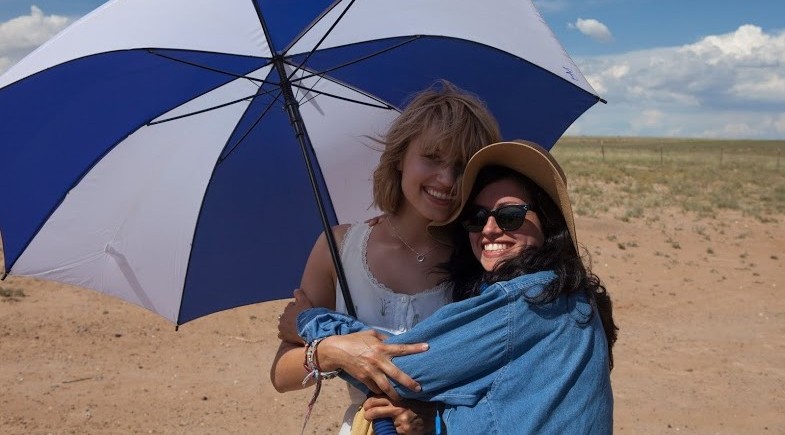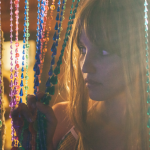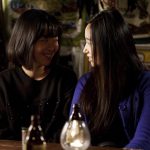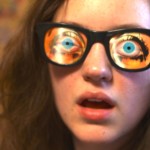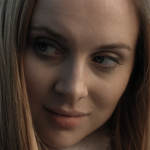By David Pountain
As one half of the New York production team Purple Milk, director Natalia Leite’s body of work is alive with a spirit of impulsiveness and self-determination. Whether she’s returning to nature in TV on the Radio’s “Million Miles” video or making the move to LA in her hit web series Be Here Nowish, Leite’s oeuvre looks for personal awakening in unconventional places and progressive ideas. The results range from the funny and absurd to the melancholic and provocatively ambiguous.
Her vibrant feature film debut, Bare, takes these sensibilities into the realm of nocturnal dreaminess through its story of a young girl (Dianna Agron) introduced to a life of drugs and stripping through her relationship with a female drifter (Paz de la Huerta). Talking to FilmDoo, Natalia Leite speaks of the processes and collaborations behind her new work and the wider context that is her already rich, expansive career.
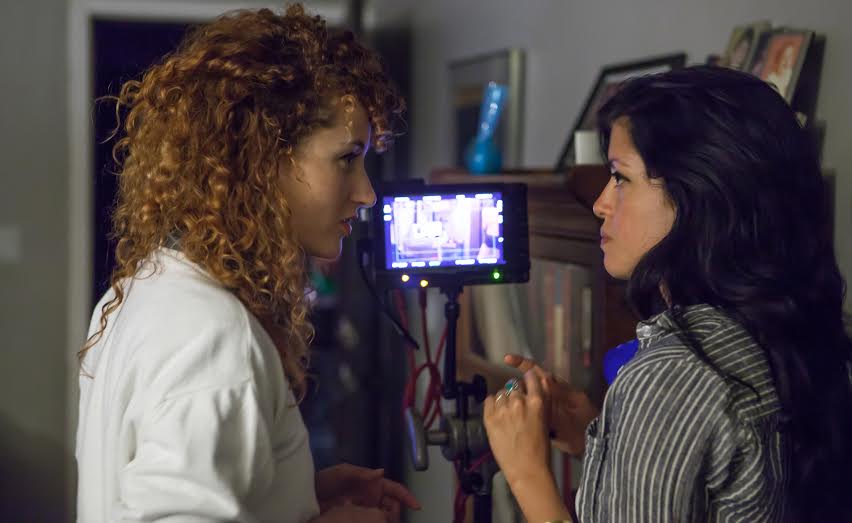
Generally speaking, who would you say were some of your biggest creative influences?
I am a huge David Lynch fan. I really love filmmakers and artists that deal with surrealism, different realities or mysticism and I try to bring some of that into my own work. I love some of the work of Jane Campion, who did The Piano and a lot of other great films. And Spike Jonze, especially his work with Charlie Kaufman. It’s pretty magical, and also has some of those similar elements. They all have a darker, sort of bizarre sense of humour that I really appreciate and are able to balance that out with drama – and with thriller elements sometimes. I really think that their styles are super unique and have definitely influenced my work.
And would you say that this comes across in your new feature, Bare?
They definitely influenced me. This was my first feature and obviously there were a lot of hurdles. You’re figuring out your voice when you’re making a feature. I had done some shorts but features are a whole other scale and everything’s compressed in time to try to fit the budget. But I think definitely in the trip sequence in the desert when she goes off and has a different experience – or even when she’s on stage. I was thinking about what that would be like from her point of view, rather than what’s really happening, and constructed those scenes with a more surrealist approach.
When you started on Bare, what was your original idea behind it? What were you seeking to make?
I grew up in Brazil but part of my family’s from a small town and small towns are very similar wherever you go – just the mentality around them. I grew up in a situation where I felt like people that I was around at my age were taking a certain path in their young adult life and that it was very mapped out. I wanted to do something different. I didn’t know exactly what it was but I knew that I didn’t want to follow the same footsteps as the people around me. I ended up having a relationship with a woman who opened my horizons in a sense. She showed me that I could reinvent myself and I could create my reality however I wanted it to be. So that was the core idea. Stripping was just a tool. The film has nothing to do with being a stripper really. It’s just the fact that it’s shamed in her town and she’s making these choices. It’s not about right or wrong choices but that she’s making a choice and making a step towards something that’s potentially closer to where she wants to be. And that’s kind of what it was for me too. I was at that same age when I made some bad choices too but, in the end, it led me to the right place.
So would you say that you typically like to draw from your own personal experiences for your work?
Yeah, a lot. And also, the strip club that we shot in: I had been location scouting and spent some time there and a lot of the dancers who are acting in the film are real dancers in the club. So I definitely wanted to incorporate my real experiences and also make it feel as authentic as possible to the location by involving the community in it.
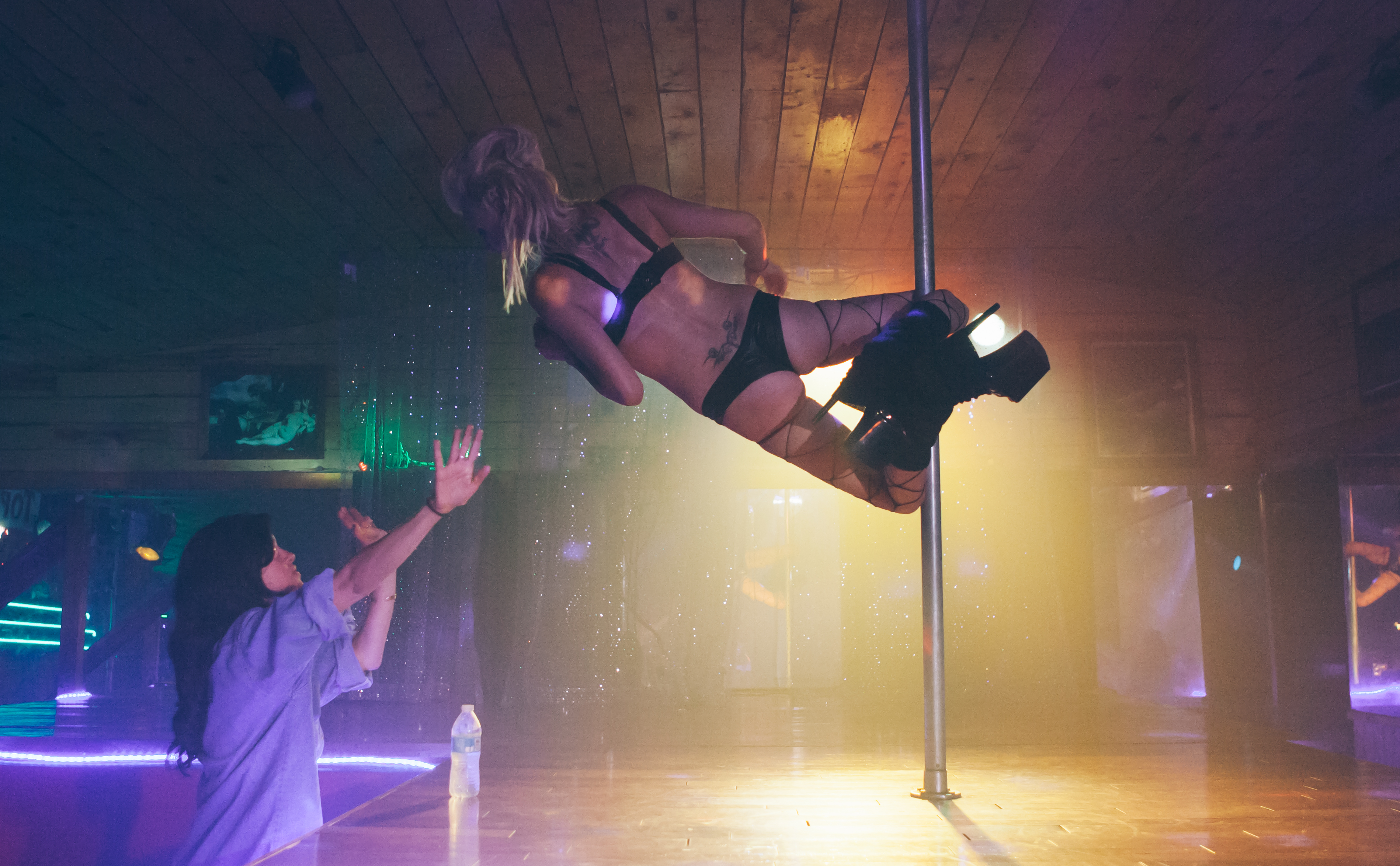
I was very impressed by the cinematography of Tobias Datum. Did the two of you work closely together to capture the tone of the story?
Yeah, he’s amazing. He’s great. I’d never worked with him before but I really loved his work. The great thing about Tobi is, when we would sit down and talk about the script and we had a lot of prep time working on it together, he would ask questions. A lot of DPs will get very technical, whereas we would have long discussions about character motivation, like “˜Why is this scene happening? What’s happening to her in this moment?’ He was so invested in the emotional side of things and that would inform how I would shoot it. So even though I came with my own ideas and a bunch of reference images and all of that, everything took shape once we started collaborating and getting to the core of each scene because I wanted it to be about the character’s point of view. Tobi’s the best. We had a really good experience working together.
And how about Kyp Malone of TV on the Radio? How did he get involved in the project?
Kyp is a good friend of mine. We live a block away from each other and have been friends for a while. We started collaborating a few years ago – I think it was two years ago – he asked me to be in a TV on the Radio music video. He had a concept. He wanted to direct it but he had never directed anything before so he was like, “˜Do you want to help me bring this to life?’ So we worked on this video together called “Million Miles”, which was the name of the song. He directed me in it, which was really fun. So from then on we were like “˜Oh, this is so wonderful. We love working together!’ So I asked him to score the film. He’d never scored a feature before but he’s just such a talented genius. I was like, “˜I know this is gonna work out. It’s gonna be fine’. And it was amazing. We had so many wonderful, creative discussions about how it should go. Because Kyp writes songs, a lot of it was about scaling it down. It was like, “˜No, you don’t have to have so many layers’, because it’s a film and there’s other things involved, not just the sound. And now we’re working on other projects and it’ll hopefully be a long-running collaboration.
Speaking of collaborators, much of your work, including Bare, has been done with the involvement of your partner in Purple Milk, Alexandra Roxo. What would you say it is that keeps the two of you working together?
For Bare, Alexandra was one of the producers on it. I had already written the script and I presented it to her and she loved it and wanted to do it. We kind of take it project by project, depending on what’s happening. For that one, it just made sense. We weren’t gonna co-direct it because it was always my script and my vision and whatnot, my story. We’ve been working together for three years now and managed to make a lot of work. I think we’re different in a lot of ways so we sort of balance each other out. We have different skillsets and we can bring that all to the table and make it happen. Constant partnerships can be a little tough sometimes too because you’re working so closely with someone and it’s just constant communication, checking in and just seeing the bigger picture.
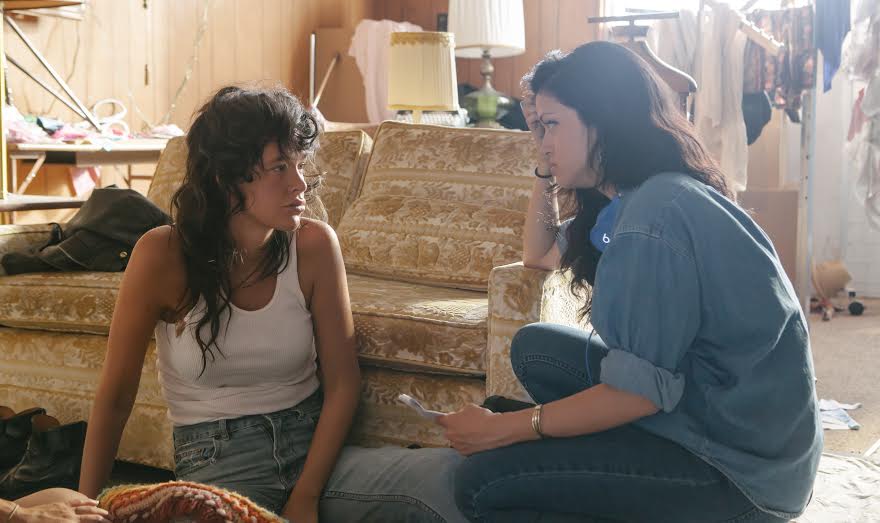
Your first feature film, Bare, is quite a different work in tone from your web series, Be Here Nowish. Would you say that you approach these two mediums with the same mentality or are they very separate art forms to you?
They’re totally different. With Be Here Nowish, we don’t have a lot of prep time. We’re not shot listing or anything. We’re just doing it. With Bare there was a lot more thought into constructing each scene and how everything took place. Be Here Nowish was always more free form. We didn’t have a lot of money, we were just working with our friends and it was a very small crew. So things are more organic and just happen. I think the show kind of took on its own style. I think a lot of it is just informed by the medium. It’s for the web and it’s just short little segments and it’s supposed to be just funny and punchy. People have a different tolerance for watching things online. I feel like there’s a lot of different people involved in Be Here Nowish. Like this season, Karley (Sciortino), who plays my girlfriend in the show, is one of the contributing writers. It’s just a lot of people’s opinions and influences that make the piece, which is sort of magical in its own way because here’s all these great people that we’re friends with bringing a lot of people’s ideas together.
So you’d consider Bare to be the more personal project?
Yeah, definitely. Be Here Nowish is also inspired by my life and Alexandra’s life but I wrote and directed Bare. So it was very much that I had to come up with this vision and crafted it and then brought other collaborators into it.
At the same time, I feel that Bare and Be Here Nowish seem driven by a comparable spirit of spontaneity. Is this something that you consider important to you what you do?
Yeah, for sure. Even though in Bare we had prep time and spent all this time crafting things, a lot of stuff was tossed to the wind on set. I think that the style that I’m interested in making and the kind of films that I’m interested in making are a lot about letting things breathe and having it be organic and not being so tight to a form or to how you thought of it initially. These are human beings enacting a scene and it has to just take on its own life. I think that’s been a big part of all the work that we’ve done.
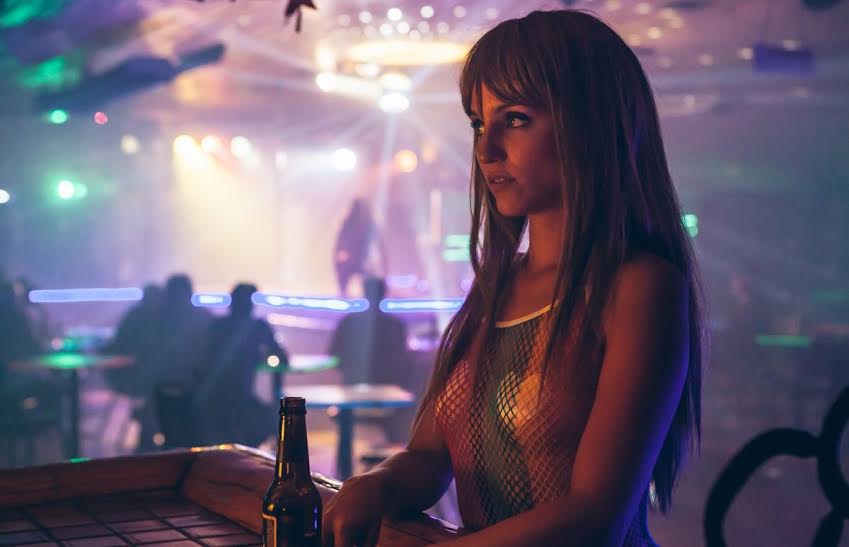
You’ve already worked on a web series, a feature film, some short films and you’ve done some documentary work. Are there any other mediums that you can see yourself branching out into?
Yeah, definitely. I went to art school and I was doing photography. I would stage scenes and photograph them. That was primarily the kind of work I was doing then and I was doing a lot of drawing. I actually got into art school with a drawing portfolio. I was doing these charcoal and black-and-white drawings, which is a totally different medium, and lately I’ve been wanting to go back to that – and not because I don’t wanna do films. I wanna do films but I think it all informs itself. I feel like now that I’ve gotten pretty good at this one medium, maybe I wanna try something else or express a story in a different way and have that be a part of my career too.
And is there an area that you can see yourself focusing in on in the long term?
Definitely filmmaking. I think storytelling throughout is the thing. I wasn’t acting until Be Here Nowish and now I’m going on some auditions and that could be a thing. Even if I do two-dimensional work like drawings, I think there’ll be a storytelling element in it. I’d love one day to write a book and do all of that. But I think filmmaking will always be the primary focus.
Can you tell us something about any other projects you have in the works?
Right now I’m doing a project with Vice. There’s this piece online that we did with them about two years ago. We’ve done a few documentaries with them but that one was more personal, where we went and lived in this truck stop strip club, which is the same place where we shot Bare. We’re doing a project with them that’s sort of developing that series – not in strip clubs but different locations. It’s like investigative journalism. Each episode we go and live a different woman’s lifestyle for a period of time – just different women’s subcultures where women co-exist. Like a sorority or a convent, but those are the more obvious ones and we’re digging for some cultures that people are less familiar with. It’s investigating female relationships, which is also something that I’m interested in and that is a through line in the work.
Discuss Bare at FilmDoo.com.

